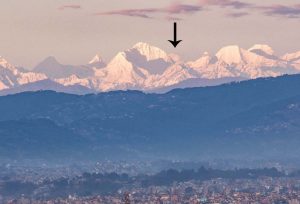Pope Francis might be the richest person on earth in terms of spiritual wealth: he wins hearts irrespective of religious affiliation, ethnicity, or nationality, and his visits draw record numbers of faithful devotees and interested visitors. Such is his division-spanning popularity that Pope Francis has been aptly dubbed “the people’s pope.”
On 21 June, after hearing his declaration against the global weapons industry, I was moved to post on my Facebook timeline: “He is probably the first pope [that] God actually intended.” Through his voice, people have found freedom and Christianity has found a fluid medium to deliver its message across the globe. With his serene disposition and warm, childlike smile, Pope Francis has perhaps extended the reach of his office further than any previous pontiff.
The reception for Pope Francis in Sri Lanka during his 13–15 January visit was a testament to this universal appeal. Hundreds of thousands of people gathered at Galle Face Green in Colombo on 14 January to watch the pope celebrate Mass and canonize the nation’s first saint in the hope of receiving his blessing.
“He is so different from any of the popes we’ve previously had,” Father Ajith Perera, dean of the Philosophate of Ampitiya Seminary in Sri Lanka, told me. “It’s perhaps his background of being born in Argentina and experiencing the harsh realities of life. His view of poverty is compassionate, and caring for the needy and the sick seems paramount. Even while he was in Sri Lanka he was not at all interested in talking to us, the clergy. He was more interested in reaching out to people and blessing them.”
Father Ajith noted that the pope was seen personally blessing people on the street, despite potential security risks.
During my discussion with Father Ajith of this aspect Pope Francis’s life, I met Dilan Jayaweera, a 24-year-old student from the University of Colombo. I asked him what had motivated him to visit the street along which the pope was passing. “I am a Buddhist, but Pope Francis seems an exceedingly pleasant person who cares about the world,” he responded. “If he loves people, then it’s time we respected him, irrespective of his religion. Even the Buddha acclaimed treating the sick and feeding the poor. I think that Buddhists can learn from him the value of sharing as today we are not inclined to share what we have.”
Indeed, the Buddha was compassionate towards the poor, the sick, and the needy. In the Cakkavatti-Sihanada Sutta (The lion’s roar on the turning of the wheel) in the Dhiga Nikaya (Collection of long discourses), the Buddha clearly identifies the root cause of poverty as the misuse of wealth by affluent rulers: “Thus, from the not giving of property to the needy, poverty became rife, from the growth of poverty, the taking of what was not given increased, from the increase of theft, the use of weapons increased, from the increased use of weapons, the taking of life increased.”
While advocating caring for the poor and the needy, the Buddha also possessed an intimate knowledge of how poverty is created in the world; poverty can be alleviated by the dissemination of wealth. In this respect, Pope Francis has begun laying a foundation to end world hunger by 2025. In his apostolic exhortation Evangelii Gaudium (The joy of the gospel), the pope says: “In all places and circumstances, Christians, with the help of their pastors, are called to hear the
cry of the poor . . . Seeing their poverty, hearing their cries and knowing their sufferings, we are scandalized because we know that there is enough food for everyone and that hunger is the result of a poor distribution of goods and income.”
So, what can Sri Lanka, as a Buddhist nation, learn from the pope? For that matter, are we humble enough to accept such a lesson?
“Even in Sri Lanka there are priests who dislike his non-traditional ways,” said Father Ajith. “Pope Francis is a person who goes against the rigid organization structures and regulations, which are thousands of years old. He has declared that the purpose of his appointment is to serve the purposes of alleviating poverty and helping the impoverished around the world. Even in his day-to-day activities, he signifies simplicity, minimalism, and love towards his fellow human beings, irrespective of their nationality or ethnic background. As a Catholic priest I advocate that such qualities should be characteristic of any religion, including Buddhism.”
At this point, I’d like to draw a comparison—Prince Siddhartha Gautama was born in a highly structured, rigid Hindu society, but by becoming the Buddha, he made such structures unimportant. By disregarding such boundaries, he was able to be compassionate towards all, regardless of caste or creed. There are notable similarities between the social context in which Prince Siddhartha grew up and the religious institution in which the pope exists.
In the ten Paramitas, or ten perfections, that a person aspiring to become a Buddha should practice, two clearly emphasize generosity as a virtue. Dana means “giving,” and refers to the giving of material wealth, food, and the Dhamma itself. The third perfection is nekkhamma, which means “renunciation”—the practitioner should selflessly sacrifice his or her pleasure for the sake of others.
In contemporary times, religion has been heavily institutionalized and as such fails, at times, to perceive the needs of the people and can lack the fluidity and flexibility required to attend to them. This has become intrinsic even in Buddhism, where large organized temples, nikayas (monastic orders), and sangha communities often fail to address the people’s needs. A Buddhist monk’s life, which the Buddha insisted should be utterly simple, has in some cases become materialistic and accumulative. Temples have become grounds for wealth, expensive vehicles, and beautiful buildings; places the wealthy and powerful of society enjoy more than less affluent people.
One Buddhist monk, who wished to remain anonymous, commented: “Today in temples we have too much. Our lives have become complicated, electronic, and lethargic. Though the Buddha demanded selfless serving for the good of all beings, we have become self-serving more than we are not. We have forgotten how to part with wealth; we are disinterested in dana, sila [virtue], and bhavana [meditation]. In such an age, I think the current pope has the qualities of a bodhisattva who parts with his wealth for the well-being of the people. He has become ‘the people’s pope,’ and as Buddhist monks and Buddhist leaders, that’s exactly what we also should become. We must strive to be ‘the people’s monks’ instead of ‘temple monks’ who mind their own business. People have to feel the compassion, generosity, and wisdom of the Buddha within us. Then, and only then, will we succeed as Buddhist monks. I think that is the lesson we can learn from Pope Francis, who has wealth beyond measure yet takes to the streets to bless and treat the poor. That is indeed admirable.”
On an island where Buddhism has helped to inform the thoughts and behavior of its people, I have my own limitations in assessing what we can learn from Pope Francis. My views will not apply to the majority, and expressing them risks tagging someone with an anti-Buddhist sentiment. However, as a country dominated by traditional Buddhist practices, I feel that Sri Lanka has a lot to do in order to meet the needs of today’s society.
Professor Desmond Mallikarachchi, a former head of the Department of Philosophy and Psychology at the University of Peradeniya in Sri Lanka, has a different interpretation regarding the pope and what we could learn from him: “He has discovered a middle path,” he said. “This path lies between orthodoxy and philanthropy, and I would say that he treads this path both to save the religion as well as to save the people. It’s a new interpretation of the role of Catholicism and one that could teach a newly materialistic nation like Sri Lanka a lesson or two about the missing balance between Buddhist religious order, philanthropy, and the importance of reaching the masses.”
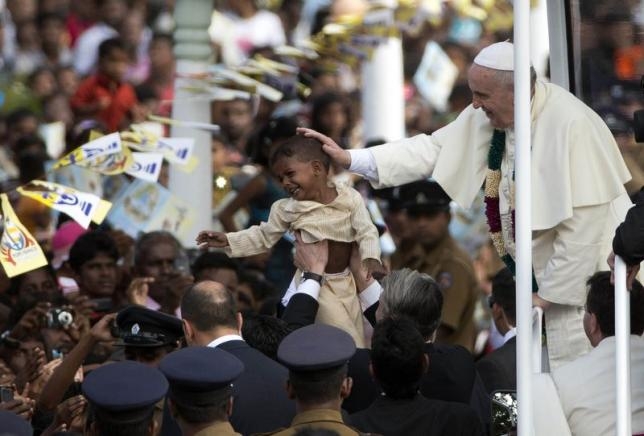
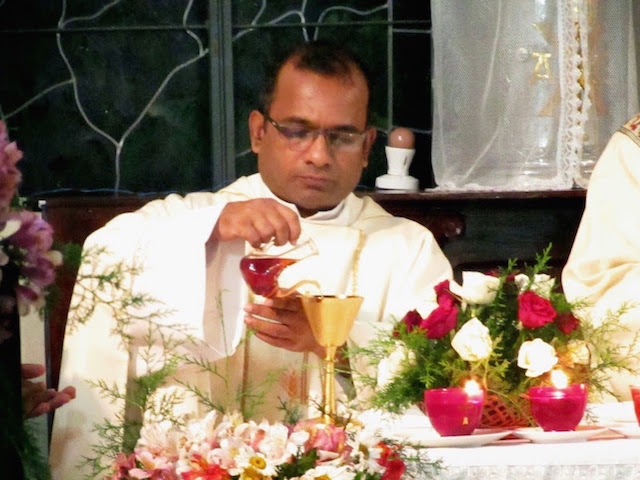
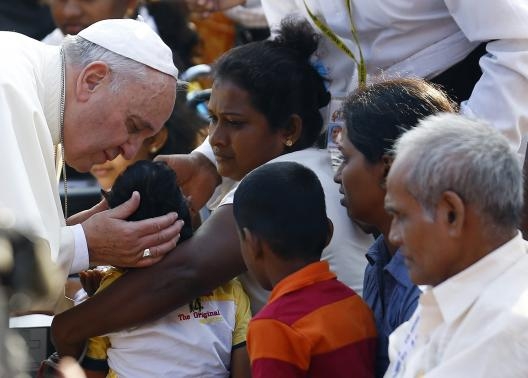
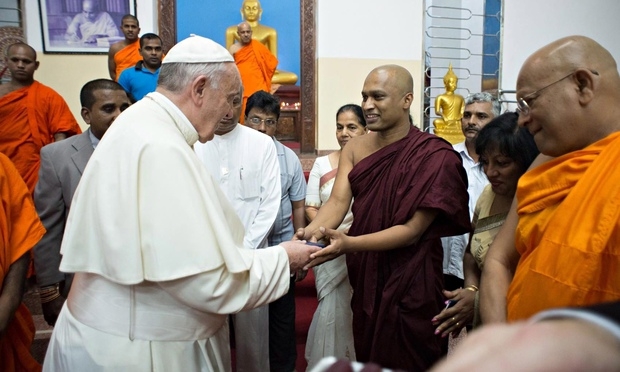
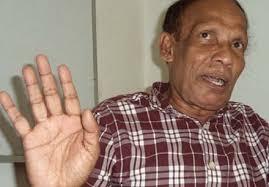
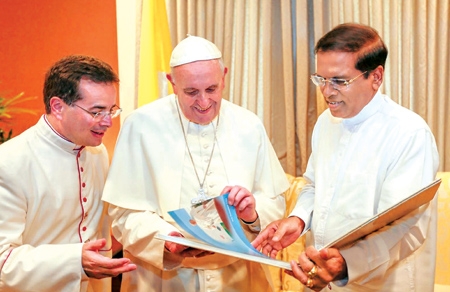
References
Cakkavatti-Sihanada Sutta (Basic Buddhism)Evangelii Gaudium (The Holy See)
See more
Papal Visit—Sri Lanka 2015 (Facebook)Apostolic Journey of His Holiness Pope Francis to Sri Lanka and The Philippines (The Holy See)Pope Francis on Care for the Poor (Catholic Relief Services)
Pope Francis on the True Meaning of Poverty (Catholic Education Resource Center)








